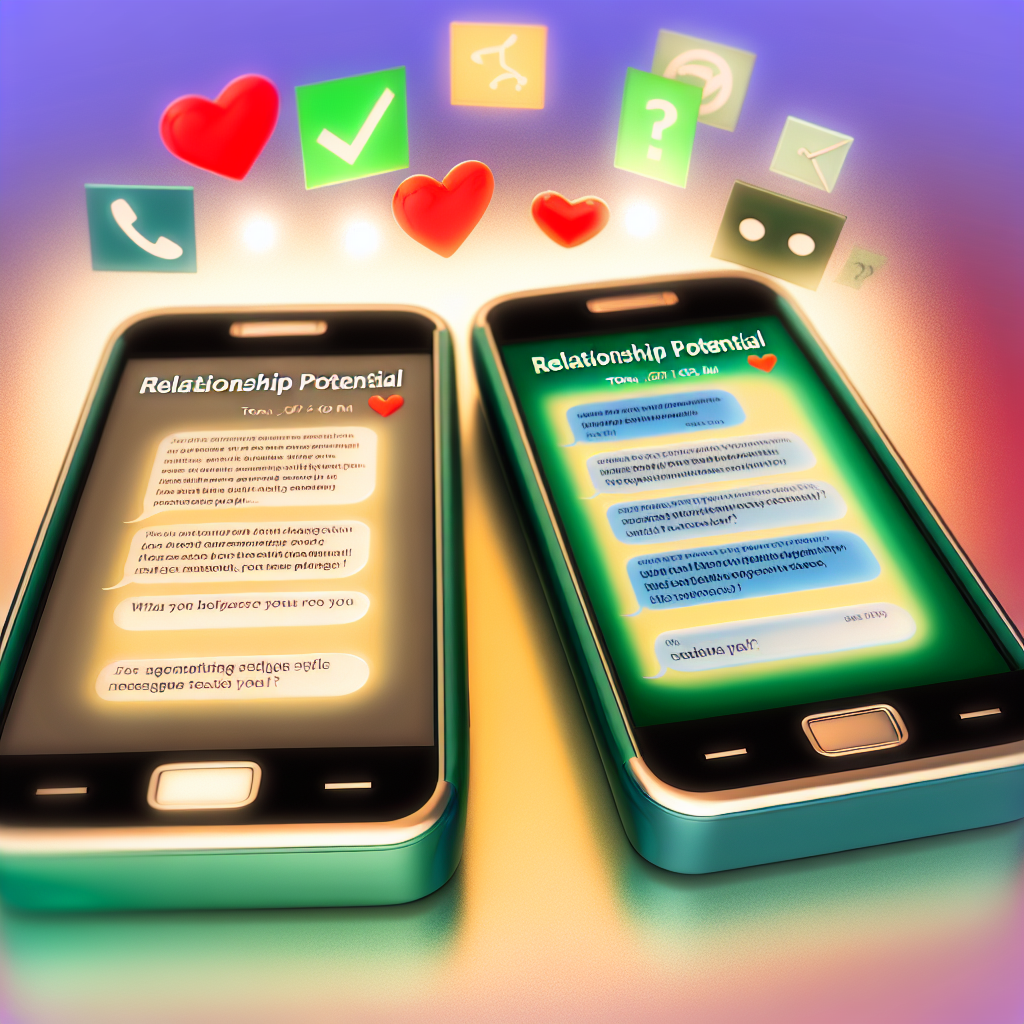Location Sharing Ethics: Navigating Privacy and Safety in Modern Dating
The New Rules of Dating in a Digitally Connected World
In an era where digital connections often precede face-to-face meetings, modern dating has experienced a dramatic transformation. As dating apps and online platforms continue to dominate how singles meet, new layers of safety, trust, and transparency have emerged—none more critical than the ethics of location sharing. From casual daters to those seeking lifetime partners, individuals increasingly confront the delicate balance between navigating intimacy and protecting personal security.
Location sharing, once a niche tech feature, has become commonplace. Apps like Apple’s “Find My,” Google Maps, and even location features embedded in dating apps like Tinder or Bumble make it easier than ever to share one’s whereabouts. For couples who have built trust, this digital transparency can add a layer of emotional closeness and peace of mind. But for many, especially those just getting to know each other, sharing location too soon can raise privacy concerns and feelings of vulnerability.
The ethical considerations surrounding when and how to share your location while dating stems from the importance of informed consent, personal autonomy, and digital safety. Growing concerns about cyberstalking, misuse of location data, and digital manipulation prompt experts to recommend thoughtful strategies for navigating this aspect of dating—especially in the early stages.
Different people have varying comfort levels with technology and privacy settings, so the approach to location sharing should always be personalized. Singles, from Gen Z to Baby Boomers and beyond, are encouraged to weigh the risks and benefits involved. The question isn’t simply whether to share your location, but when, with whom, for how long, and in what context.
Moreover, location sharing isn’t a one-size-fits-all endeavor. For example, younger generations who have grown up with smartphones may feel more comfortable sharing real-time data, while older adults reentering the dating pool may approach it with more skepticism. Regardless of age, understanding the ethics behind location sharing can protect your emotional and physical safety, deepen connections built on mutual trust, and ensure that modern-romance decisions are made with eyes wide open.
Digital Intimacy or Digital Invasion? The Psychology Behind Location Sharing
Numerous psychological and sociological studies support the growing awareness around digital boundaries, especially in romantic contexts. A 2021 Pew Research Center report found that nearly 48% of adult online daters feel concerned about how much personal information is available publicly. The digital age blurs boundaries, often making it difficult to differentiate between openness and oversharing. As such, location sharing becomes a key focal point in the larger discussion on digital intimacy and consent.
Medical and psychological professionals have long studied the impacts of digital surveillance in relationships. According to Dr. Lisa Damour, a clinical psychologist and author specializing in adolescent development, location sharing can foster connection and emotional safety—if the relationship is built on trust. However, she warns that, in the absence of healthy boundaries, location tracking can become a tool of coercive control. This concern is echoed by the National Domestic Violence Hotline, which reports that digital tracking—including GPS and location sharing—is often used in abusive relationships to monitor, harass, or control a partner.
Invisible Lines: How Digital Boundaries Define Healthy Relationships
The American Psychological Association (APA) has highlighted the importance of digital autonomy, arguing that setting boundaries around data, including one’s physical location, is crucial for mental well-being. When individuals feel pressured to share their whereabouts—whether it’s from a date or someone they’re in a relationship with—it can lead to anxiety, fear, and erosion of trust.
Technological studies from Stanford University’s Department of Computer Science have found that while GPS-based location sharing technologies are generally safe, user behavior and sharing patterns determine the actual risk. Their research indicates that users who share locations without implementing time limitations, app controls, or clear communication guidelines are more likely to experience breaches of privacy and even stalking.
Practicing conscious consent and educating oneself on app settings is essential. Most major apps now allow you to control who sees your location and for how long. Some even include “safety check” features where users can discreetly notify a friend or contact when meeting someone new—offering both security and discretion.
Smart Choices: Building Trust Without Sacrificing Safety
These collective findings reinforce the importance of clear dialogue and digital literacy in modern dating. Ethical location sharing isn’t simply a matter of app functionality—it’s a human-centered approach to dating built on safety, mutual respect, and autonomy.
Establishing trust takes time, and so should the decision to share your location. One effective strategy is to delay real-time location sharing until a relationship moves past the early stages and a foundation of mutual respect has been established. Until then, temporary options like sharing an “ETA” or using secure communication tools with check-in features can provide safety without unnecessary exposure.
Consent is not just for physical intimacy—it’s crucial in every aspect of a relationship, including technology usage. Before agreeing to share your location, ask yourself:
– Do I feel fully comfortable with this decision, or am I doing it out of obligation?
– Are there boundaries in place, such as time limits or app restrictions?
– Is this being done as a gesture of mutual trust, or as a way to monitor or control?
When both partners take the time to communicate their intentions clearly and respect each other’s preferences, location sharing can be a modern tool for connection rather than a risk.
Conclusion: Navigating the Future of Dating with Ethics and Empathy
As dating continues to evolve, so too must the ways we think about personal safety, digital boundaries, and trust. Location sharing can be a helpful tool when used responsibly, but it should never be coerced or assumed. Dating ethically in the digital age means respecting each other’s limits and taking deliberate steps toward safer, more trusting relationships built on mutual consent and understanding.
To date with integrity is to blend emotional intelligence with digital mindfulness—empowering all involved to explore connection without compromising safety.
References
– Pew Research Center. (2021). Online Dating & Relationships.
– The National Domestic Violence Hotline. (n.d.). Technology Safety.
– American Psychological Association. (2019). Digital Boundaries in Relationships.
– Dr. Lisa Damour. (2020). Psychological Impacts of Tech in Teen and Adult Relationships.
– Stanford University – Human-Computer Interaction Group. (2021). Location Sharing and User Risk Behavior.
Concise Summary:
This article explores the ethical considerations surrounding location sharing in modern dating. It discusses the psychological impact of digital intimacy and autonomy, the importance of setting clear boundaries, and strategies for building trust without compromising safety. The article emphasizes the need for informed consent, personalized approaches, and a balanced perspective on utilizing location sharing as a tool for connection rather than control.

Dominic E. is a passionate filmmaker navigating the exciting intersection of art and science. By day, he delves into the complexities of the human body as a full-time medical writer, meticulously translating intricate medical concepts into accessible and engaging narratives. By night, he explores the boundless realm of cinematic storytelling, crafting narratives that evoke emotion and challenge perspectives. Film Student and Full-time Medical Writer for ContentVendor.com




